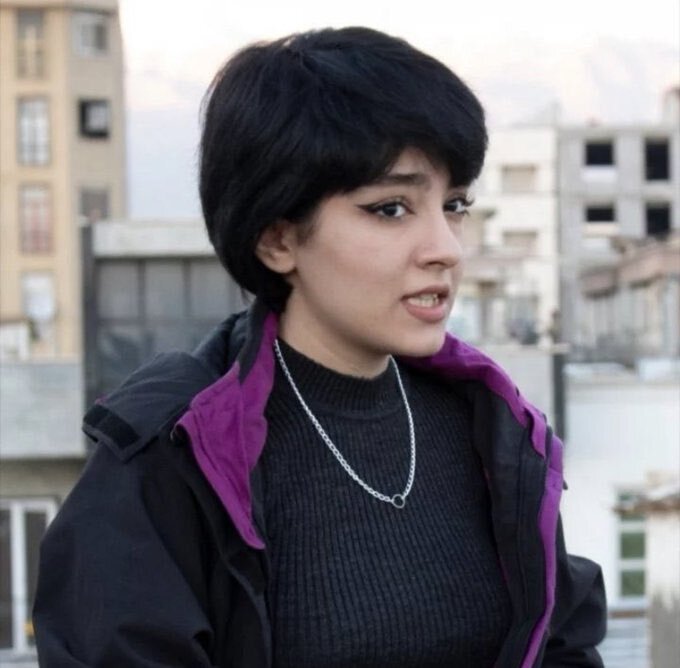By Alireza Akbari
TEHRAN- The BBC has fabricated a groundless report surrounding the tragic death of Iranian teenager Nika Shakarami with a twofold motive: to inflame public sentiment and to deflect attention away from the intensifying crackdown on pro-Palestinian demonstrations within American university campuses.
This incident is not an isolated one. Such instances have been orchestrated by Western media outlets to obscure Israeli war crimes in Gaza, divert attention from the West’s support for oppressive regimes, or, as in this case, to sow discord amidst student-led pro-Palestinian movements.
The BBC's purported role in disseminating unfounded accusations against Tehran underscores broader concerns about the biased viewpoint of Western media coverage vis-à-vis Iran.
Amid global concern about the plight of freedom advocates facing harsh crackdowns and potential expulsion from American universities, the BBC has reverted to familiar tactics, employing sensationalism to deflect attention and vilify Iran.
Fake allegations by BBC
The latest BBC report has come under intense scrutiny for a multitude of errors that cast doubt on its credibility and raise suspicions of ulterior motives.
Central to the controversy is the report's reliance on a purportedly official letter, which, upon closer examination, lacks essential hallmarks of authenticity. Notably absent are common features found in official correspondence, such as standardized fonts and seals indicating high confidentiality. Additionally, the letter fails to include crucial temporal markers, a glaring oversight that further undermines its legitimacy.
Furthermore, linguistic anomalies within the letter raise red flags, notably the use of terminology inconsistent with Iran's judicial proceedings. Such oversights suggest a lack of familiarity with the intricacies of Iranian official communications, casting doubt on the document's origins.
Perhaps most egregious is the contradiction regarding the letter's use of a slogan from 2022, yet the Iranian police force's name changed in 2021. This oversight calls into question the credibility of the BBC’s allegedly called “ Highly confidential” document.
The BBC's assertion regarding Nika Shakarami's death is similarly contentious, as it contradicts findings by Iranian legal authorities. While the report insinuates a connection between Shakarami's demise and Iran’s 2022 riots, investigations have determined otherwise.
Shakarami's tragic death has become fodder for Western media outlets' longstanding agenda, which seeks to undermine the Islamic Republic of Iran by any means necessary. This pattern of manipulation and distortion has been evident since the victory of the Islamic Revolution, with Shakarami's case merely the latest iteration in a series of sensationalized narratives aimed at tarnishing Tehran's reputation.
Simultaneous with Nika Shakarami's death, CNN's attempt to implicate Iranian security forces in her death served as a cautionary tale, highlighting the dangers of hasty conclusions and sensational reporting.
Investigating Nika Shakrami's case
Following the discovery of a teenage girl's body in the backyard of a residence in Tehran, investigations into the circumstances surrounding her death were unfolded. Initial observations suggested that the girl tragically fell from the roof, with her belongings found on the adjacent four-story building's roof platform.
Mohammad Javad Shafiei, the head of Tehran province's criminal prosecutor's office, provided insights into the case. According to Shafiei, residents of a building in Amirakram Square alerted authorities upon discovering the young woman's body in their yard. Specialized teams swiftly arrived at the scene and determined that she had been thrown from the neighboring building into the yard.
Autopsy findings revealed multiple fractures across her body, indicative of a fall from a significant height, with no evidence of gunshot wounds.
Further investigation by the Tehran Criminal Prosecutor's Office included the release of video footage captured seven hours before the discovery of Nika Shakarami's body. The footage depicted her conversing on a mobile phone while approaching a half-finished house near her aunt's residence. Subsequent analysis of CCTV footage confirmed that she had not interacted with anyone in the building and was not being pursued.
While the BBC report claimed the body was found close to 10 p.m., statements from Nika Shakarami's mother contradicted this assertion, indicating a conversation with Nika at the same time.
These inconsistencies raise doubts about the veracity of the BBC report, which purportedly lacks corroborating evidence, eyewitness testimony, or audio-visual documentation.
These disparities by the BBC highlight the crucial need for conscientious journalism and thorough fact verification to maintain the credibility of reporting and curb the dissemination of unsupported claims.


No comments:
Post a Comment